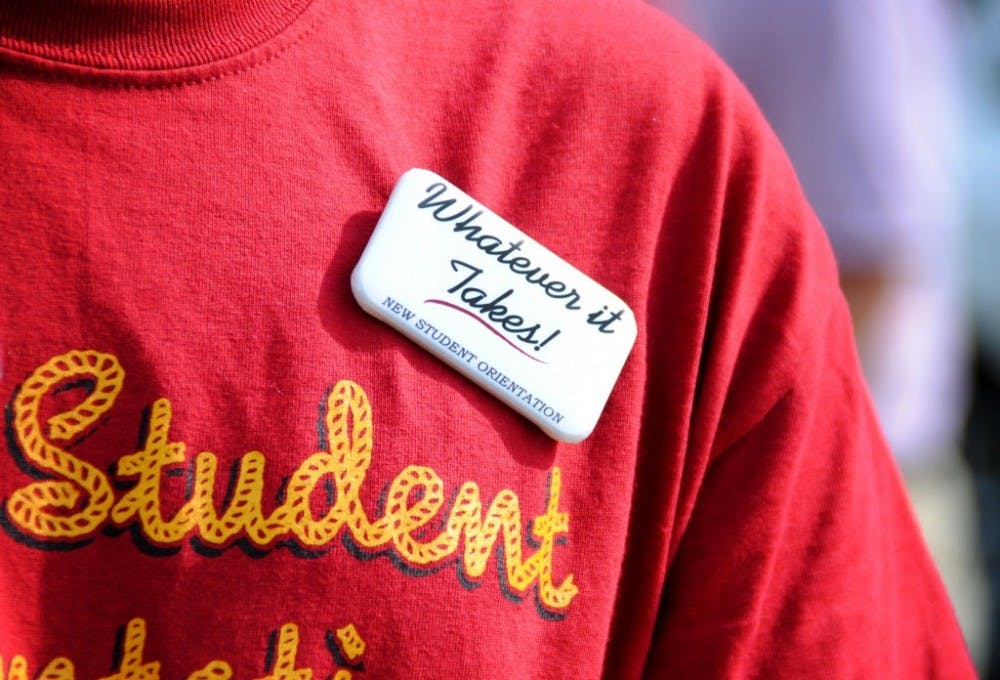Students who transfer into Elon University come from a wide array of backgrounds. Some come from community colleges, others have completed a full year at another four-year institution, while some transfer after only one semester.
With more than 100 transfer students joining the Elon community each fall, those in charge of the orientation process have realized a need to revitalize the way Elon welcomes these students to the campus.
Transfer students pose a unique problem for orientation leaders, because unlike the incoming freshman class, many of these students have at least one semester of college under their belts. Mixing them into the standard orientation process for freshmen would not be beneficial.
Compared to state schools in the area such as North Carolina State University and the University of North Carolina at Chapel Hill, Elon is a firm believer in allowing transfer students to have a voice in how their orientation is conducted. This progressive idea enables transfer students to have a more focused orientation process.
Many universities do not take the time to analyze their incoming transfer students because they think transfer students know they want to be at their new school, while many freshmen are still unsure. Additionally, transfer students have already adjusted to college, which leads many universities to falsely believe they do not need an orientation process designed specifically for them.
Opting to break that false belief about transfers, Elon has taken the time to re-envision the orientation process so that transfers not only feel welcomed, but they want to attend various orientation activities.
Unlike freshmen, most transfers come to Elon already adjusted to college life. Despite not enjoying their first college experience, they have the skills of time management, how to sign up for courses and how to do their laundry. Keeping that in mind, Elon has now set up a system that directly benefits transfer students.
By making orientation lectures more Elon-specific, such as how Phoenix Cards work, transfer students are able to get the information they need without having to listen to lectures they have already heard at their prior institutions. Combining this with a more casual setting such as holding a transfer orientation meeting in Irazu Coffee Shop, instead of a classroom, transfer students are more likely to seek out these programs instead of avoiding them out of fear of being repetitive.
In past years, the students who lead orientation groups (informally known as OL’s) were not trained to cater to the needs of transfers. As a result many transfer students were forced to figure out the layout of the campus on their own. Realizing that transfer students need more help merging into the Elon community, the university has thrown out traditional orientation ideas in pursuit of a more effective means to help these new students transition to Elon smoothly.
For many who enter Elon as transfer students, the biggest challenge they face is meeting new friends and finding their identities on campus. To avoid transfers feeling isolated on the campus, the university is now making an effort to bring the transfer community together. Events such as cookouts and informal gatherings on campus aim to bring these students closer together. This will allow for students to share their experiences while the orientation leaders gain valuable insight on how to better their plans for the coming semester.
The most valuable aspect of the transfer orientation Elon has tapped into is utilizing current students who came into the community as transfers. Using these former students to welcome new transfer students creates a nurturing and welcoming environment from the very start of the orientation process.
College is too expensive and goes by too quickly not to be happy where you go to school. It takes a great deal of courage to pursue change.
Unlike other schools who sit idly by as all their incoming students go through the same orientation, Elon has decided to move in a different direction. This not only provides a strong platform for transfer students to pursue success but, it allows the university to get to know its student body and how it can better assist incoming students as they transition into life at Elon.
Members of the Editorial Board are Nick Foley, Jonathan Black, Katy Canada, Greg Honan and Lauren Phillips.


